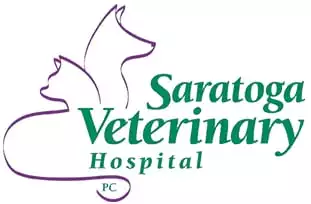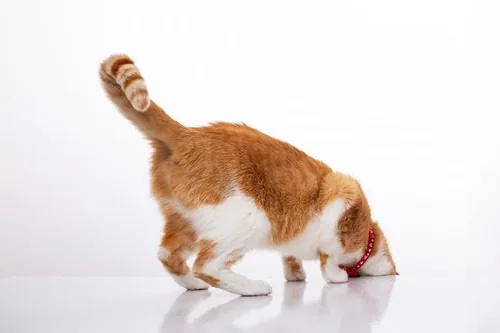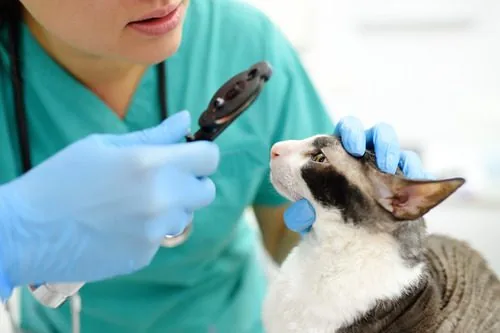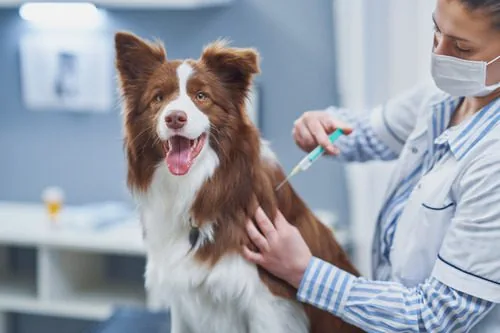Dog Nose Dripping: Why Your Dog Has a Runny Nose
A dog’s nose is an important part of their health—and it often gives us clues when something’s off. While a moist nose is normal for most dogs, noticeable dripping or nasal discharge can raise questions for many pet owners. If you’ve noticed your dog’s nose dripping more than usual, you’re probably wondering what’s causing it and if you should be concerned. From environmental irritants to respiratory conditions, there are several reasons why your dog might have a runny nose. This blog explores the possible causes of dog nose dripping and explains when it may be time to contact your veterinarian. Continue reading to learn more and discover what your dog’s nose might be trying to tell you.
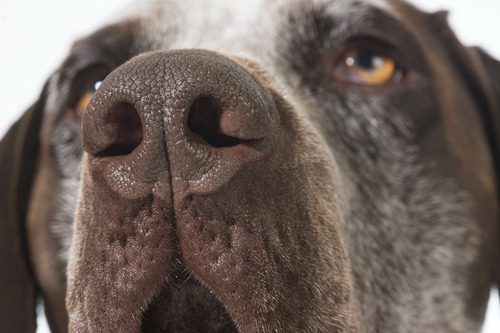
What Does It Mean When Your Dog’s Nose Is Dripping?
Occasional moisture on your dog’s nose is typically nothing to worry about. Dogs naturally have damp noses due to mucus secretion that helps them identify scents and regulate body temperature. However, consistent or excessive dripping can signal an issue. When the discharge changes in appearance, becomes constant, or is accompanied by other symptoms, it’s important to pay attention.
A runny nose may appear clear, cloudy, or even tinted with blood or pus, depending on the underlying cause. Some dogs may only have a mild nasal drip, while others might sneeze, paw at their nose, or show signs of discomfort. Watching your dog’s behavior and the characteristics of the discharge can provide helpful information when speaking with your veterinarian.
Common Causes of Dog Nose Dripping
There are many reasons why a dog’s nose might be dripping, and some are more serious than others. Below are the most common causes, organized to help you understand what might be affecting your pet.
Allergies
Just like people, dogs can have allergies that trigger nasal symptoms. Pollen, dust mites, mold spores, and household cleaners are all potential culprits. If your dog’s nose dripping tends to happen during certain seasons or when indoors, allergies could be to blame. In addition to a runny nose, allergy-related symptoms might include sneezing, watery eyes, skin itching, or red, inflamed ears. Environmental allergies can become chronic, so it’s important to discuss any consistent signs with your veterinarian. If your dog’s nose dripping continues for more than a few days or worsens over time, a professional evaluation is recommended.
Foreign Objects
If your dog has a curious nose, they might sniff something they shouldn’t. Grass seeds, small pieces of wood, or even insects can sometimes become lodged in the nasal passages. This can cause irritation, inflammation, and noticeable dripping from one side of the nose. A foreign object may also cause sneezing, pawing at the face, nasal bleeding, or noisy breathing. If your dog has any of these signs in addition to a dripping nose, they should be examined promptly. Trying to remove a foreign object at home can make the problem worse.
Infections
Viral, bacterial, or fungal infections can lead to nasal discharge and congestion. These infections may cause thick, yellow or green nasal mucus and are often accompanied by coughing, lethargy, or loss of appetite. Canine influenza, kennel cough, and distemper are some common respiratory infections that can cause dog nose dripping. If your dog has been around other dogs recently—such as at a boarding facility, dog park, or groomer—they could have picked something up. Some infections may resolve with supportive care, while others may require medical treatment.
Nasal Mites
Nasal mites are microscopic parasites that can inhabit the nasal passages and sinuses of dogs. Though not very common, they can cause chronic irritation and symptoms like sneezing, reverse sneezing, nasal discharge, and nosebleeds. Dogs that spend a lot of time digging in the dirt or interacting with other dogs are more likely to contract nasal mites. A definitive diagnosis often requires an exam and possibly a nasal flush performed by your veterinarian.
When Dog Nose Dripping Signals Something More Serious
While some causes of a dripping nose are mild, others may point to more serious health concerns. Long-term or unexplained nasal discharge can sometimes be a sign of chronic illness, tumors, or dental issues.
Nasal Tumors
Nasal tumors tend to occur more frequently in older dogs and certain breeds with longer noses. These growths may block the nasal passages, causing one-sided dripping, bloody discharge, and noisy breathing. A gradual change in the frequency and nature of nasal discharge should not be ignored, especially if your dog shows signs of discomfort. Veterinarians typically diagnose nasal tumors through imaging and may recommend a biopsy to determine if the tumor is cancerous. Early diagnosis and treatment can help improve outcomes, so it’s important to report any concerning symptoms.
Dental Disease
Believe it or not, dental issues can cause nasal symptoms in dogs. Infections in the upper teeth can erode the bone between the mouth and nasal passages, resulting in drainage from the nose. If your dog’s nose dripping is paired with bad breath, drooling, or difficulty eating, a dental problem might be the source. Regular dental checkups and cleanings are important for preventing complications that reach beyond the mouth.
Observing the Type of Discharge Can Offer Clues
Understanding the characteristics of your dog’s nasal discharge can help your vet determine what’s going on. The color, consistency, and whether the drip is coming from one or both nostrils all offer insight.
- Clear discharge usually points to allergies or mild irritants.
- Thick yellow or green mucus often indicates an infection.
- Bloody or pink-tinged fluid can suggest trauma, tumors, or a foreign object.
- One-sided discharge is more often linked to localized issues like obstructions or dental disease.
- Two-sided discharge may indicate more systemic problems such as infections or allergies.
Keep track of how long the symptoms last, any changes you notice, and any other signs that appear alongside the nose dripping. This information will help your veterinarian during the diagnostic process.
Additional Symptoms to Watch For
If your dog’s nose is dripping, pay attention to any additional symptoms that might develop. These signs can point to a larger health issue and may indicate that it’s time to schedule an exam. Watch for:
- Frequent sneezing or coughing
- Pawing at the nose or face
- Nosebleeds
- Swelling around the nose or eyes
- Eye discharge
- Loss of appetite or changes in behavior
- Difficulty breathing
The presence of even one of these symptoms along with persistent nose dripping should prompt a call to your veterinarian. Quick action can make a difference, especially if the underlying issue is progressing.
Why Prompt Veterinary Evaluation Matters
Even if your dog seems fine otherwise, ongoing nasal discharge should be evaluated. A dripping nose can stem from a minor problem, but without professional input, it’s difficult to know for sure. Waiting too long could allow a condition to worsen or spread.
At Saratoga Veterinary Hospital, our team is here to help you find answers. We’ll perform a full physical exam and, if needed, recommend diagnostics such as blood work, nasal swabs, X-rays, or advanced imaging. Identifying the source of your dog’s nose dripping allows us to move forward with the most appropriate care. To speak with a member of our team or schedule an appointment, call us today at (518) 587-3832. We’re happy to answer your questions and support your dog’s health every step of the way.
Helping Your Dog Breathe Easy Again
Your dog’s nose serves more than just a sense of smell—it’s a window into their health. If you’ve noticed your dog’s nose dripping consistently, there’s always a reason worth uncovering. Whether it’s a harmless allergy or a more complex issue, getting a diagnosis can provide relief for both you and your dog. Staying alert to changes in your dog’s behavior and bodily functions allows you to act when something seems off. Trust your instincts, and when in doubt, let your veterinarian guide the next steps. If your dog is experiencing persistent nasal discharge, give us a call at (518) 587-3832 to schedule an evaluation. Our Saratoga Springs veterinary team is here to help your dog breathe easier, feel better, and stay healthy.
Recent Posts
What is a Fear Free Veterinarian? A Calmer Approach to Pet Care
What is a Fear Free Veterinarian? A Calmer Approach to Pet Care For many pets, a trip…
Hyperthyroidism in Cats: Symptoms & Treatment
Hyperthyroidism in Cats: Symptoms & Treatment Hyperthyroidism is one of the most common hormonal conditions affecting middle-aged…
Dog Licking Paw: Symptoms & Treatment
Dog Licking Paw: Symptoms & Treatment If you’ve noticed your dog licking their paws more than usual,…
Cat Eye Infection: Symptoms & Treatment
Cat Eye Infection: Symptoms & Treatment When your cat has an irritated or weepy eye, it’s hard…
Lyme Disease Vaccines for Dogs
Lyme Disease Vaccines for Dogs Protecting your dog from Lyme disease is an essential step in supporting…
About Saratoga Veterinary Hospital
Saratoga Veterinary Hospital is proud to serve as your local veterinarian of choice in WIlton, NY and the surrounding areas. Since its founding in 1973 by Dr. Sofarelli, our animal hospital’s main goal has been to strengthen the human-animal bond with exceptional veterinary medicine and client services.


